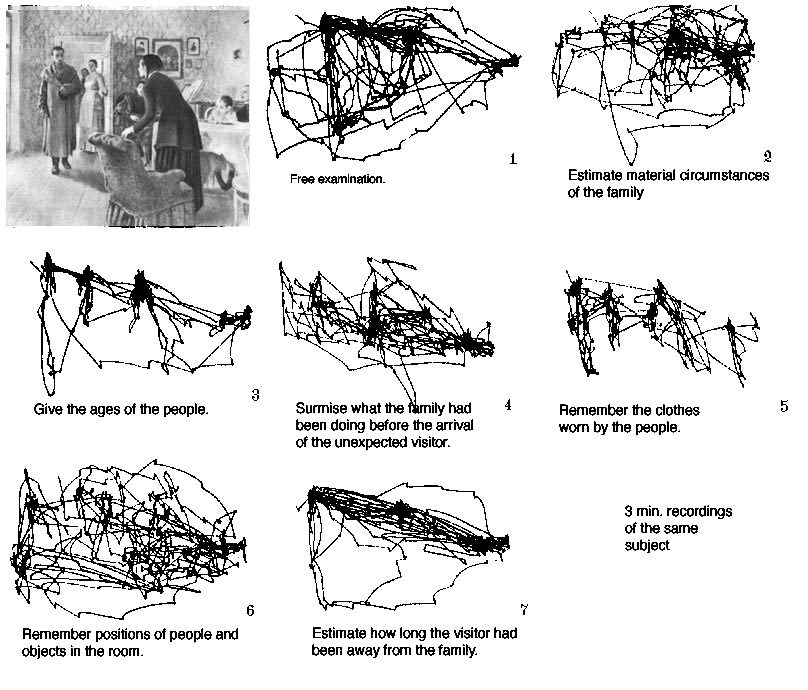Blindness
One of the "jobs" of any religion is to help people learn to see differently than we normally might see. This is part of the reason why the best religious teachers tend to ask questions rather than give a lot of answers (to much of the general populations' chagrin). The reason questions are used to help us all learn to see differently is because questions actually do direct our eyes. Take for instance this study done with eye-tracking software as people looked at a painting "Unexpected Guest".
If you cannot read this picture, here is the quick explanation:
The painting is in the upper left corner and next to that people were asked to just look at the image ("Free Examination"). Their eyes were tracked and the lines you see are where and how people's eyes moved across the painting. The next images that track eye movement as a result of different questions asked. So you see the upper right tracks the eyes of people who were asked of the material wealth of the family while the lower right asks people to remember the objects in the room. You get the drift.
Notice that when there was no question asked people looked in what seems to be in something less than a pattern. However, when people were asked a question, it guided their vision toward the answer. No big deal there I suppose, but it remarkable that we seem to all "know" how to look at a painting for the answer to the question. But that is for another day.
The point of this post is that questions drive not only where we look but how we look. Thus when we approach the Bible we have to consider the questions that we bring to that reading. Because it is the questions that will direct where and how you look at that text.
It then should be no surprise that Christians consistently give the same interpretations when reading the Bible regardless of the text we are reading. It should be no surprise that the best religious teachers (in my book) are interested more in questions rather than answers. If people were told the answers to the question, say the ages of the characters in the painting, then I would be willing to bet most people would look at the painting as they do in "Free Examination"
Questions guide where AND how we look.
Answers give us permission to look only were we want to look.
To quote the book Incognito "You can know some things about the scene without knowing other aspects of it, and you become aware of what you're missing only when you're asked the question."
We can know some things about the message of Jesus without knowing other aspects of it, but we only become aware of what we are missing when we are asked the question.
So, the task of the Christian and the Christian teacher is what questions do we need to ask in order for non-Christians and nominal Christians in order to expose that which is being missed?
(In case you are counting, this post is #600 for this blog. I cannot believe how much of a spiritual discipline this is for me over the past years this has become.)
